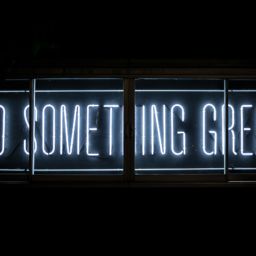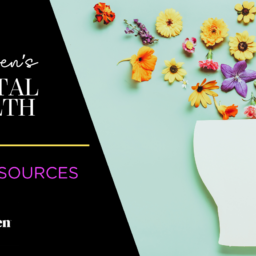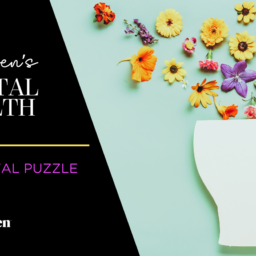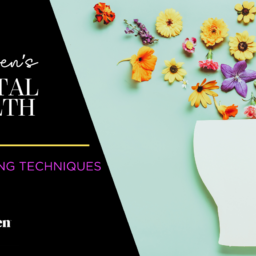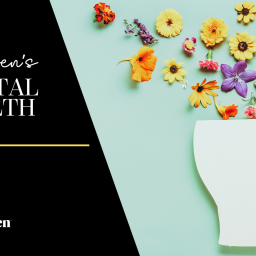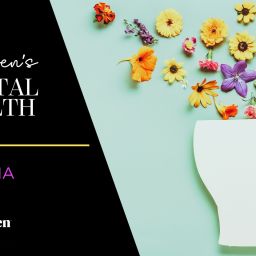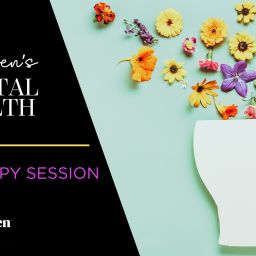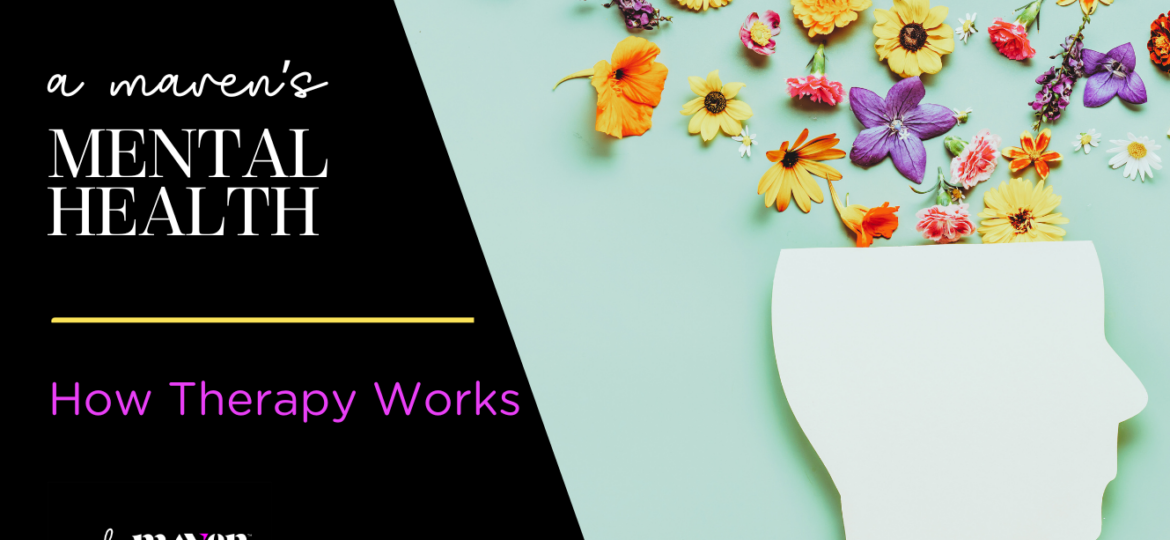
 Welcome to Indy Maven’s Mental Health column coming by way of Adair McDonald, LMHC (she/her/hers). Check out her website for information about how Adair works with clients, and to contact her directly to book a session.
Welcome to Indy Maven’s Mental Health column coming by way of Adair McDonald, LMHC (she/her/hers). Check out her website for information about how Adair works with clients, and to contact her directly to book a session.
Therapy is weird. You pay someone money to listen to your problems, but the main point isn’t for them to tell you how to solve them. There are goals that are agreed upon by the client and the therapist, but also you aren’t supposed to get too hung up on only addressing those goals since life is more complicated than that. You may tell your therapist things you’ve never shared with anyone else, yet your therapist isn’t your friend, and you may know very little about their own life circumstances.
When I tell you the main way therapy works is through the vehicle of the therapeutic relationship, you might think that means finding someone who you like and who seems to like you. However the therapeutic relationship is unique, and mutual regard is only one element. Neither I nor any other therapist will be the right fit for all people. Personality and chemistry between client and therapist do matter, as well as the professionalism of the therapist who should be competent in treating your specific issues. But even more important than specific interventions or methods is finding a clinician with whom you can co-create an alliance based on empathetic understanding, collaboration, humility, trust, and hope. Of all the factors that exist in therapy, the richness of the relationship between therapist and client is the single biggest determining factor of success. Here’s what to look for when working with any therapist.
EMPATHETIC UNDERSTANDING
In order to be helpful, a therapist must try their best to understand you. Try to remember a time you felt deeply understood by others. Try to remember a time that someone slowed down to prioritize above all tasks the understanding of you. Was it a relief? Was it a challenge? Did you have to dig deep to make sense of the moment? When we are understood, we understand our own world better, and we can start to make adjustments to live in it more fully. A therapist should offer reflections and ask questions that indicate you are in the presence of someone who really wants to know you.
COLLABORATION
 I have an embarrassing confession. Before I was a therapist I gave a ton of unsolicited advice. And don’t get me wrong, I’m a gal with a lot of opinions and I probably still let them fly a little more often than is necessary. But through my training and experience, I’ve come to realize that isn’t truly the best way to help people. Now I love slowing down to listen and understand clients’ perspectives rather than seeing everything through the lens of my own personal experiences and values. Collaboration in counseling means starting with the worldview and needs of the client in order to form authentic goals. From there, the therapist can utilize a variety of techniques to help, including evidence-based interventions, the sharing of resources, and yes, even giving “feedback” (therapist code for advice) that is actually welcome and therefore most likely to be taken constructively.
I have an embarrassing confession. Before I was a therapist I gave a ton of unsolicited advice. And don’t get me wrong, I’m a gal with a lot of opinions and I probably still let them fly a little more often than is necessary. But through my training and experience, I’ve come to realize that isn’t truly the best way to help people. Now I love slowing down to listen and understand clients’ perspectives rather than seeing everything through the lens of my own personal experiences and values. Collaboration in counseling means starting with the worldview and needs of the client in order to form authentic goals. From there, the therapist can utilize a variety of techniques to help, including evidence-based interventions, the sharing of resources, and yes, even giving “feedback” (therapist code for advice) that is actually welcome and therefore most likely to be taken constructively.
TRUST
In order for any relationship to be optimal, there must be trust. But trust isn’t something that comes naturally to all people in all settings, often for valid reasons attached to imprints on the psyche of times that others harmed or failed us. While it may not be conscious, many of us go through life fearing rejection or abandonment by others, so we attempt to present ourselves in a light that feels protective, which in turn can keep us from actually letting people know us and love us. In therapy, the risk is taken to let someone see all the parts of you, even the ones you are ashamed of, and experience that another person is still interested and dedicated to showing up for you. Over time, it becomes more instinctual to open up and share with others, and people are able to do it outside of therapy too, thus leading to more connected, authentic relationships.
HUMILITY
This can be really hard for some of us and in the therapeutic relationship it should go both ways. It is my opinion that therapy should feel like a safe space, but also be challenging at times, which can be a hard balance to strike. If things get too challenging, therapy gives us a wonderful opportunity to practice healing from a rupture in a relationship. A therapist should be humble and accept when they get things wrong, and in turn, this gives clients more space to safely explore other times they have felt misunderstood by others and how to work with that. Learning to work through conflict and come out stronger on the other side is essential in all good relationships, and therapy can help us learn to tolerate that.
HOPE
 Most people come to therapy because life has gotten harder than it needs to be. The very act of contacting a therapist to set up an appointment means at the very least a small spark of hope exists, and there is belief that things can get better. Your therapist should work with you to find that spark and kindle it by illuminating your strengths and resources as well as the tender parts of you that need more love and care. Over time, this hope grows into positive changes that will allow you to cope better with life’s challenges, and hopefully to thrive, having grown in self-compassion and confidence.
Most people come to therapy because life has gotten harder than it needs to be. The very act of contacting a therapist to set up an appointment means at the very least a small spark of hope exists, and there is belief that things can get better. Your therapist should work with you to find that spark and kindle it by illuminating your strengths and resources as well as the tender parts of you that need more love and care. Over time, this hope grows into positive changes that will allow you to cope better with life’s challenges, and hopefully to thrive, having grown in self-compassion and confidence.
If you are considering starting therapy or are already in therapy, remember that this work really is all about you and how you fit in your own life. Your therapist is there to compassionately hold up a mirror so that you can see yourself more clearly. You are a wonderful puzzle to be discovered and studied so that your pieces can come together in the most optimal way for you to reach your goals. I hope you feel empowered to ask for what you need and know that your therapist truly wants to know the best ways to help you. Find someone who is authentic and dedicated to all of these common factors that are the foundation of deep and meaningful work, and all of the other good stuff that grows from it will help you reach your specific goals.
Adair McDonald, LMHC (she/her/hers) can help with healing trauma, anxiety and panic, pregnancy and postpartum emotions, relationships, adult ADHD, and getting unstuck, among other things. You can book a session with her directly at adairmcdonald.com. Disclaimer: Adair is not a prescriber and this isn’t medical advice.
All of our content—including this article—is completely free. However, we’d love if you would please consider supporting our journalism with an Indy Maven membership.







